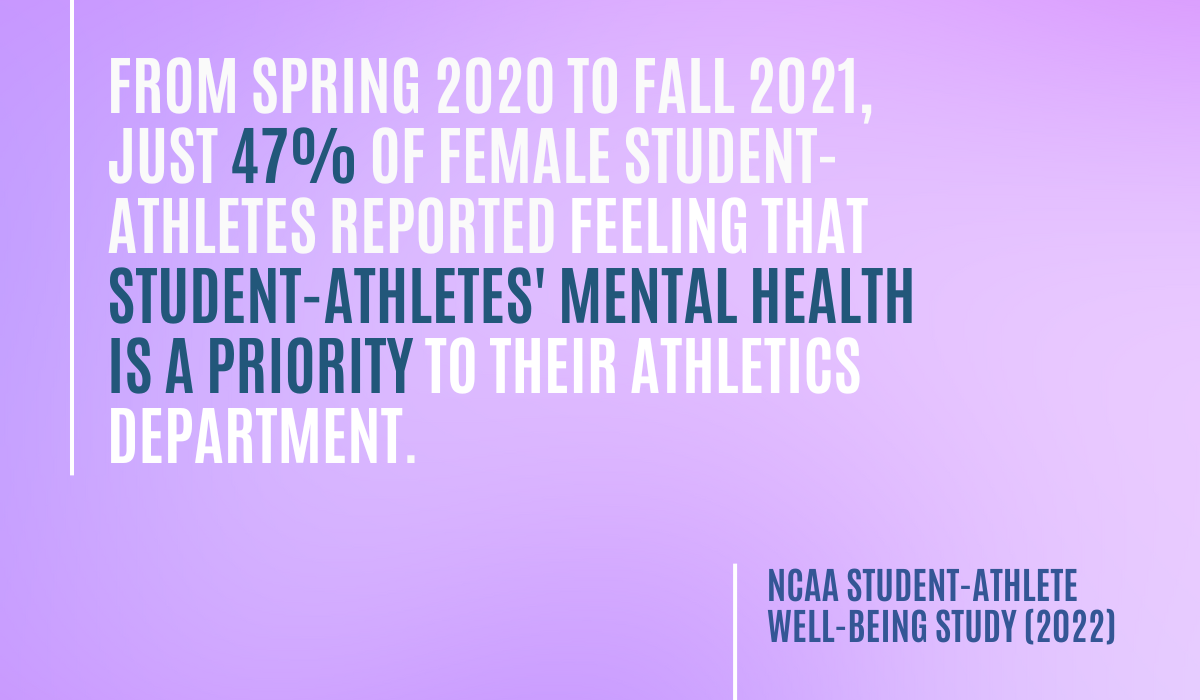Mental Health Awareness Month: Highlights from the Lead Lately
May is Mental Health Awareness Month. As athletes, we know how important physical training is in pursuit of our goals, but mental health plays just as big of a role. Last year, the NCAA published the NCAA Student-Athlete Well-Being Study, which examined the impact of the Covid-19 pandemic on student athletes from spring 2020 through fall 2021. This week, we’re sharing the different rates of mental health concerns between female and male athletes from the study:
39% of women reported feeling mentally exhausted, compared to 23% of men.
28% of women reported feeling overwhelming anxiety, compared to 12% of men.
18% of women reported feeling a sense of loss, compared to 12% of men.
33% of women reported experiencing sleep difficulties, compared to 23% of men.
It is important to note that mental health issues can and do affect athletes of all genders. More research is needed to better understand the specific risk factors and challenges faced by female athletes. However, these statistics clearly demonstrate the need for increased support and resources for athlete mental health and wellbeing.
Last week, we kicked off Mental Health Awareness month with a look into the NCAA Student-Athlete Well-Being Study (2022). Today we’re looking at whether collegiate student-athletes feel supported related to mental health:
69% of women feel like they know where to go on campus if they have mental health concerns, compared to 63% of men.
65% of women agreed that their teammates take the mental health concerns of fellow teammates seriously, compared to 58% of men.
Just 50% of women agreed that their coaches take the mental health of their student-athletes seriously, compared to 59% of men.
Less than 50% - 48% of women and 46% of men - would feel comfortable seeking support from a campus mental health provider.
And just 47% of women felt that mental health is a priority to the athletics department, compared to 55% of men.
This is our challenge to you this week: Coaches, have a discussion about mental health with your team. Ask them if they know how to engage with mental health resources. Not sure yourself? There’s no better time than now to reach out to a sport psychologist to get the ball rolling. Athletes, check in with your teammates. Ask they’re how they’re really doing. Be honest with yourself too - and be vulnerable with your teammates. Consider writing to your athletic department to ask how they plan to engage with mental health topics. If we all take it one day at a time, even small changes can have a big impact.


